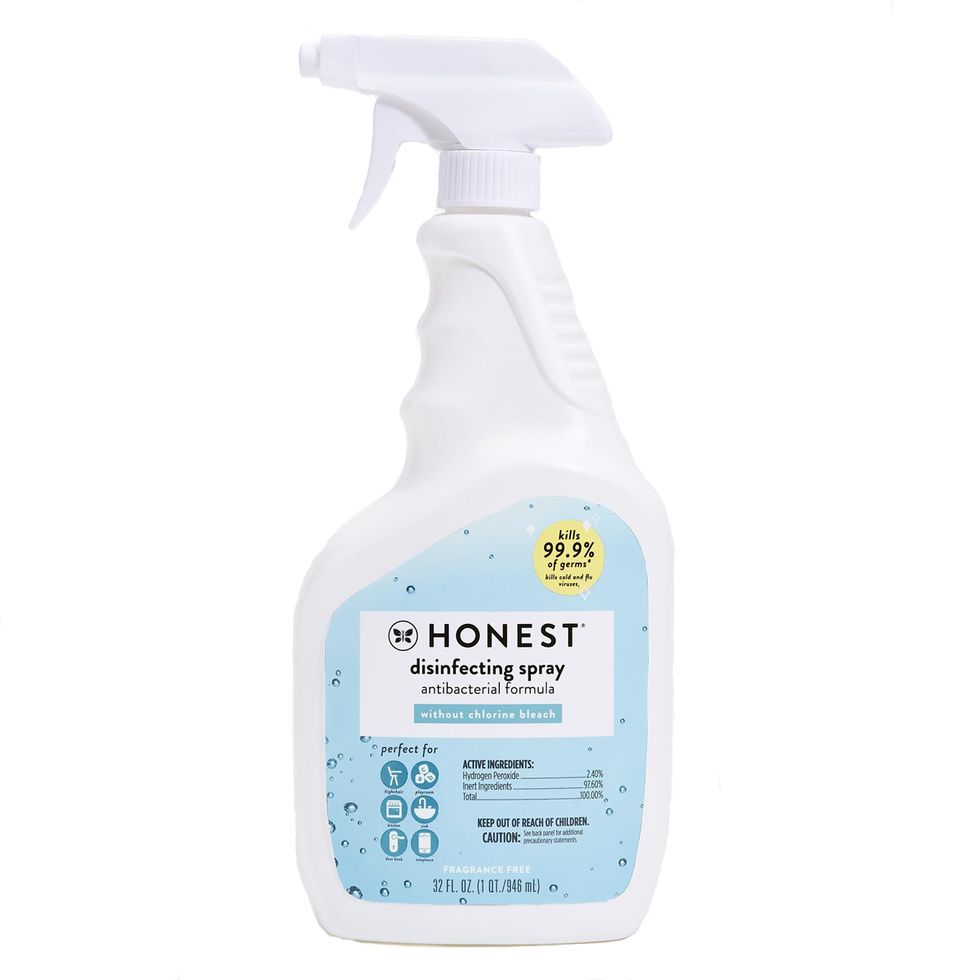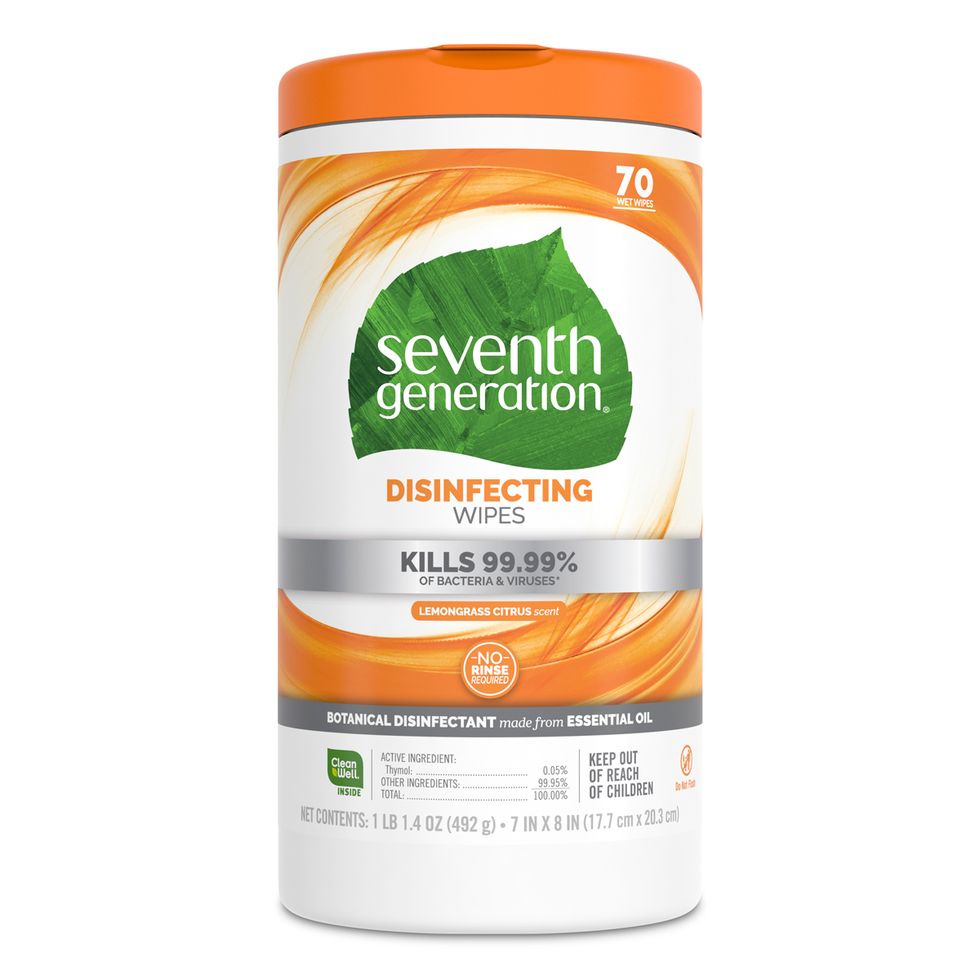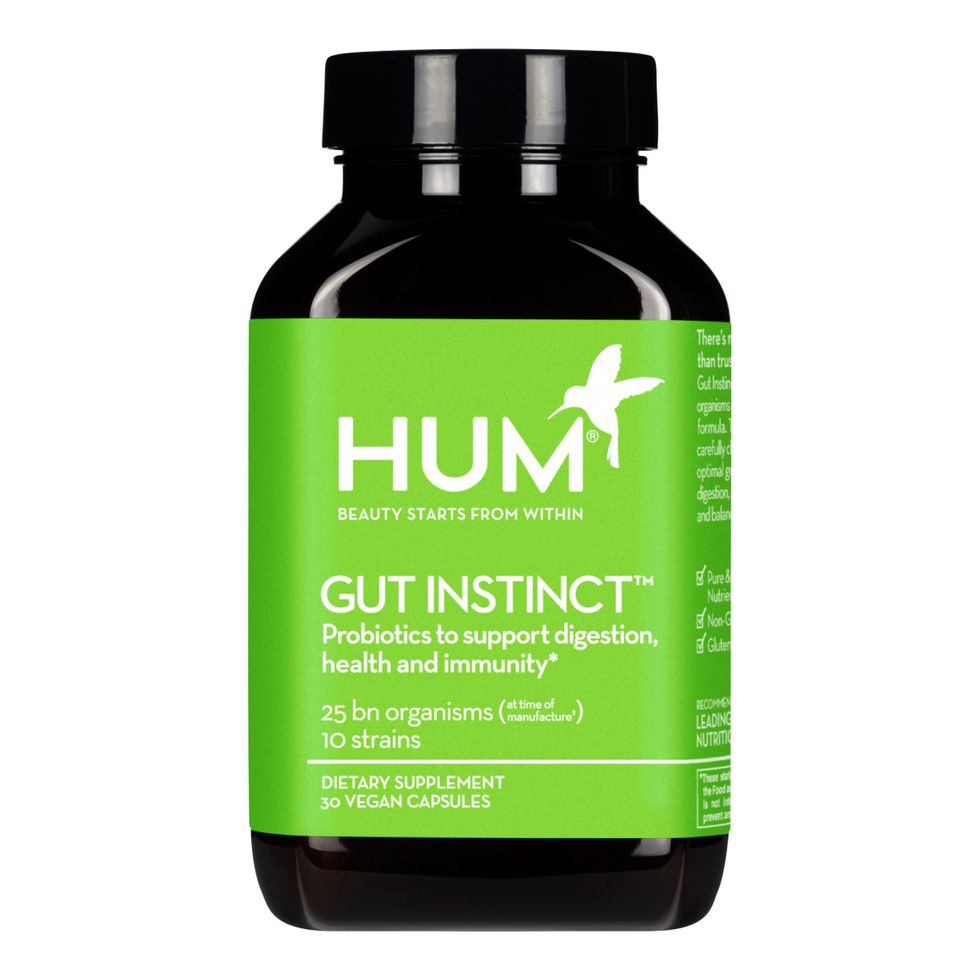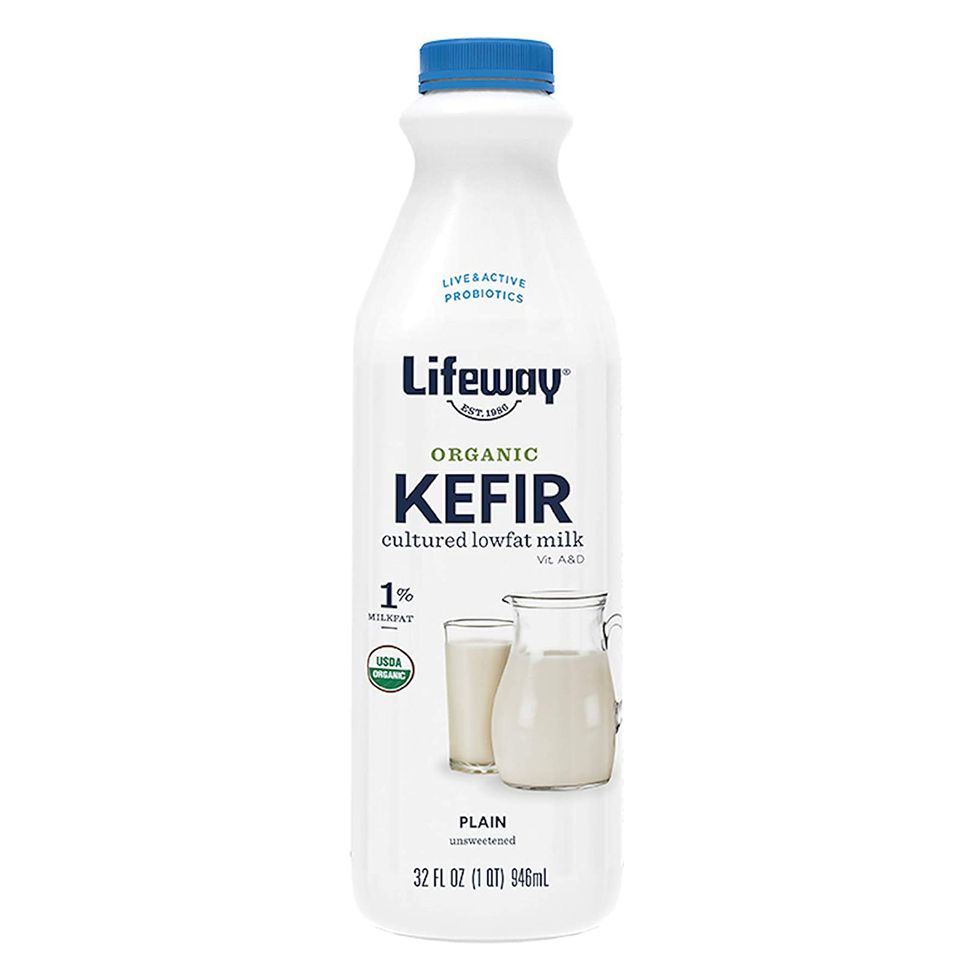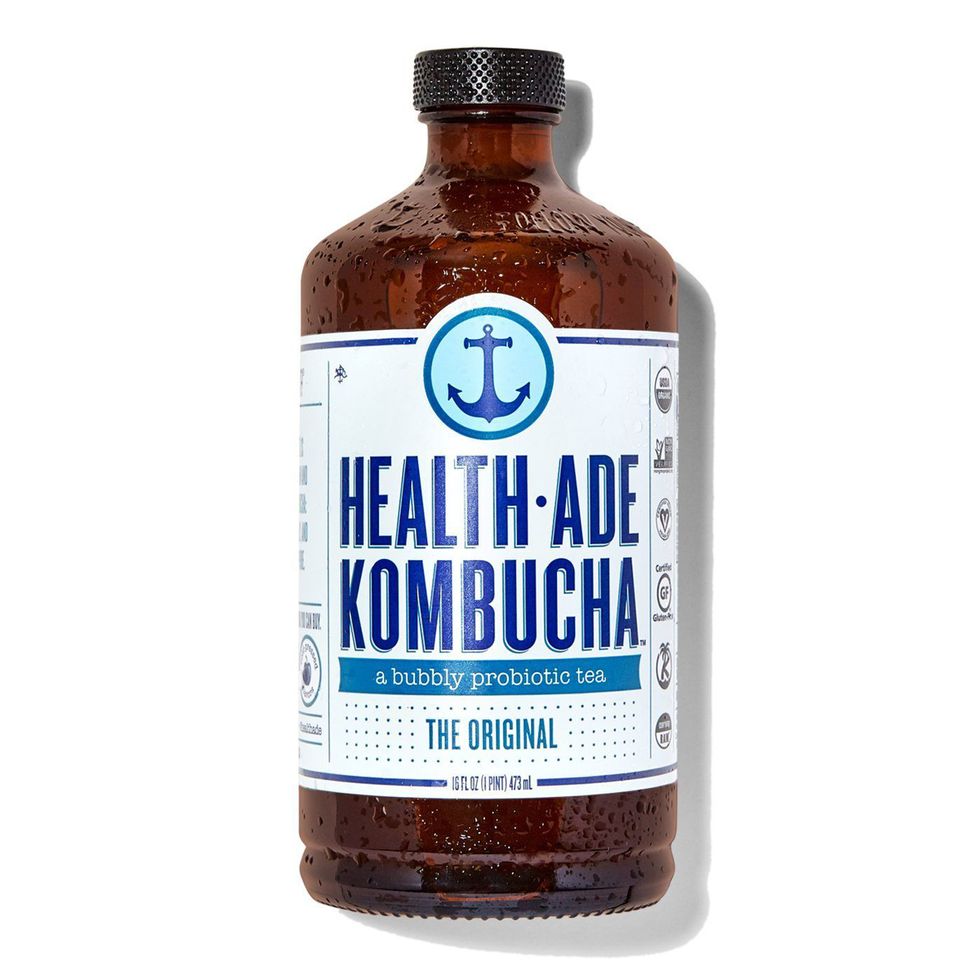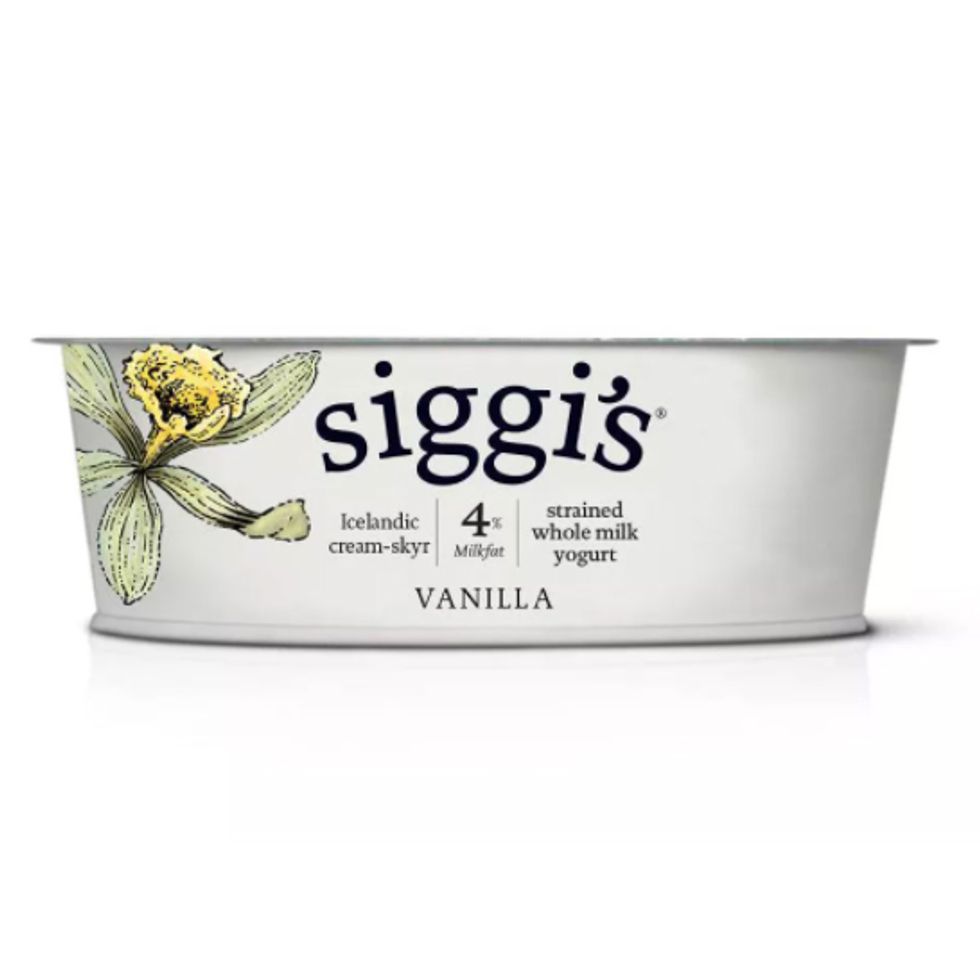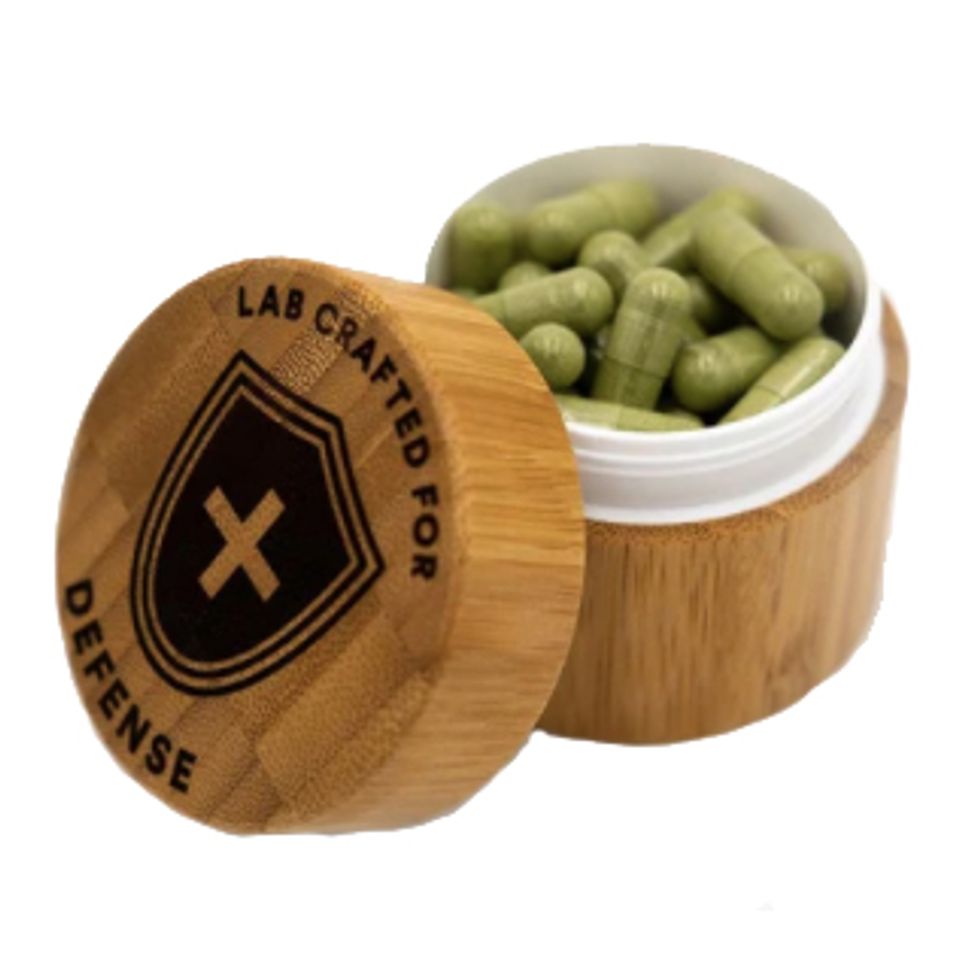Gut Health 101: Here’s What You Need to Know
A comprehensive guide to everything that goes in—and out.

Going out on a limb here to say that health might be at the top of your list these last few months. Maybe you’ve been drinking more water, washing your hands more often, or started doing lunges off-camera on Zoom meetings. While everyone’s health is different, there is one very important system inside each of us that heavily contributes to our overall lives—no matter how many squats you can pull off before your turn in a virtual meeting.
The gut, aka gastrointestinal system, aka gastrointestinal tract, aka digestive system, aka gut microbiome, aka gut flora, is a 10-meter-long muscular tube inside our bodies that includes the mouth, esophagus, stomach, pancreas, liver, gallbladder, small intestine, colon, and rectum. While the gut has more names than Sean Combs, having a healthy one builds a stronger immune system, boosts heart and brain health, provides better sleep and brighter moods, and can relieve digestion issues—not to mention its autoimmune and cancer-fighting properties. The gut is the internal body shop to help strengthen your immunity—if you are concerned about immunity for some reason.
When looking at gut health messaging, it’s difficult to determine what exactly is needed for a good gut. Probiotics? Workouts? Sauerkraut? There are too many variables for something so deeply tied to our health. We chatted with a microbiologist, a registered dietitian, a naturopathic doctor, and a leading fitness coach on the subject to get to the bottom of how to understand, recognize, obtain, and maintain good gut health—and why it’s so strongly tied to our overall health.
Why Is Gut Health Important?
For all those who think the gut solely focuses on digestion, think again. The gut and its vast ecosystem of bacteria is more expansive and essential to our health than we give it credit for. It is responsible for the critical functions of the body: absorbing nutrients from the food we eat for energy production, and eliminating waste production.
According to microbiologist, data scientist, research fellow at the University of Michigan, and Black in Microbiology co-founder Dr. Ariangela Kozik, there is evidence suggesting the gut’s microbiome controls more than simply having a great digestion day. “Deep in our digestive system lies something called the enteric nervous system (ENS). Some call it the ‘second brain’ or the ‘little brain.’” This ‘second brain,’ or ENS, controls the function of our gastrointestinal system and communicates with the central nervous system (CNS)—the brain and spinal cord—through biochemical messages that provide information about the GI tract.
You can even say there is a body, brain, gut connection going on. “We now know that the brain chemicals, called neurotransmitters, that send messages critical to many aspects of mood are found in our gut,” says Dr. Kozik. “Some gut bacteria even make them. So it is certainly reasonable to suspect that the microbiome, via the gut-brain axis, has important impacts on mood, anxiety, behavior, et cetera, but we are still working out the how of these relationships.”
Wait... There Is Bacteria in My Gut?
Oh yes, there are bacteria—lots of them. Our bodies count on the trillions of bacteria that live inside the gut’s microbiome, i.e., the microorganisms that live inside the body to help maintain functionality and homeostasis. “The microbes in our gut aid this process by breaking down our food and helping with these critical conversion reactions. They help by producing molecules that can impact many other body systems. They also help by synthesizing vitamins and other substances that we need,” says Dr. Kozik. “Evidence suggests that the gut microbiome helps train our immune systems to identify threats; it keeps our immune systems regulated to avoid overreactions, turning it up or down depending on what is going on in our bodies.”
Bacteria, archaea, and fungi all work together to send signals to our immune system and organs that respond to stress and influence our memory and sleep patterns. Dr. Kozik explains: “Our microbial residents are in constant communication with our bodies in a thriving network of information transfer, responding to changes in our bodies [and] environment while producing and degrading compounds.”
And All This Bacteria Is Good?
Alas, not all bacteria are good for you. Good bacteria is designed to protect the cells in the intestines, promote digestion, enhance immune system function, improve depression—as well as stop bad bacteria from growing. Eating a wide range of plant-based food, getting enough fiber, avoiding processed foods, and taking prebiotics and probiotics are great ways to grow good bacteria. Bad bacteria can cause an imbalance in the system and further digestive issues, sugar cravings, unexplained weight loss and gain, rashes, and autoimmune disorders.
What Are the Signs of an Unhealthy Gut?
While the gut has tons of good bacteria that work to prevent health issues, bad bacteria contributes to an upset stomach, diarrhea, heartburn, constant fatigue, skin irritation, dependency on high-sugar foods, and irregular sleep. Even brain fog is a potential sign of an unhealthy gut—the ENS could be signaling the CNS about food that hasn’t been able to digest properly, and that’s why the fog is rolling in.
Registered dietitian and Eat More Plants author Desiree Nielsen says bad bacteria can cause chronic, low-grade inflammatory conditions or even mental health issues: “If you deal with these things, it’s worth focusing on gut-friendly strategies with your practitioner, such as eating a more plant-heavy diet and watching your intake of meat and added sugars.” The RD also notes that stress management is deeply important in reinforcing the gut-brain connection. “Sometimes it’s really not the food.”
Is Stress a Factor?
Food is a major factor in throwing off the gut’s flora—the bad bacteria in our gut feeds off high-sugar and high-fat foods and breeds more of the bad guys, giving them a stronger advantage over the good bacteria. But the stress we endure can have an even greater influence on our gut.
Insert here: The Allostatic Load (AL), i.e., the wear and tear on the body which accumulates as an individual and that is exposed to repeated or chronic stress—it’s the amount of stress a person experiences on a daily basis by just existing. Research suggests that stress from AL can cause dysfunction in the gut’s microbiome, leading to insulin resistance, a hankering for a high-sugar diet, and accelerated aging, resulting in health consequences.
Dr. Kozik notes that as our body’s environment changes, our gut microbes alter, as well. “Diets with varying nutrient composition, periods of chronic stress, exposure to mold, ozone, chemicals, other medications all represent environmental changes.”
Speaking of environments: Bad bacteria feed off toxins in our food and environment such as processed food, sugars, alcohol, and even certain disinfectants—allowing them to occupy more gut space and cause health issues. In 2018 the Canadian Medical Association Journalpublished a study suggesting the use of home disinfectants could alter the gut microbiota of infants, making them more susceptible to weight gain and obesity. Eco-friendly disinfectants, such as Honest Disinfectant Spray or Seventh Generation Cleaners, did not have the same effect.
Sure, we can eat all the fermented foods we want, but it doesn’t change the fact that the microbiome in the gut responds to outside factors like stress, medication, and pollution that can alter the bacteria inside our bodies. So what can be done? Consider stress reduction, eco-friendly production, probiotic intake, and a broader range of whole foods.
What Is the Deal with Probiotics?
Probiotics are live and good bacteria that can help regulate your digestive system, eliminate bad bacteria from the gut, and add more good bacteria to the gut. Probiotics are often found in certain types of yogurt, fermented foods, and supplements—but not all probiotics are the same. “Not all probiotics are created equally,” says Dr. Nigma Talib, a naturopathic doctor and the author of Younger Skin Starts in the Gut. “There are a plethora of bacterial strains, diversity of strains, potency, and absorption that can make or break a good probiotic. A lot of strains don’t even survive the stomach before they die.”
The differences in probiotics are ones with single-strain organisms and ones with multi-strain organisms. Depending on where you are in your gut-health journey, a multi-strain probiotic is a great everyday supplement option to support gut health. Which one is the most reliable? “The DDS-1 strain of Lactobacillus acidophilus is one of the most highly stable probiotics,” says Dr. Talib.
Looking for a probiotic? Gut Instinct by Hum is a combination probiotic with Lactobacillus acidophilus that supports the immune system, digestion, and overall health.
Should I Be Taking One Each Day? And What If I’m On Antibiotics?
It’s not absolutely necessary to take a probiotic every single day, but it also isn’t such a bad idea—especially when on antibiotics. “Regular use of antibiotics is associated with increased risk of infections like C.diff, along with irritable bowel syndrome and even inflammatory bowel disease, so it’s worth trying to mitigate the effects of antibiotic use,” says Nielsen.
What’s the Difference Between a Prebiotic and a Probiotic?
Probiotics are living bacteria strains that add good bacteria in the digestive system. A prebiotic is a plant fiber that is food for good bacteria. You don’t need to take them together, but they can be more effective when taken at the same time. Bananas, asparagus, leeks, chicory root, and dandelion greens are incredible plant-based prebiotics to add to your diet—your gut will thank you!
But What about Fermented Foods and Drinks?
Break out the sauerkraut! Foods such as Kefir, sauerkraut, pickles, miso, kimchi, no-sugar kombucha, and fermented vegetables are chock-full of probiotics that are great for immune function and overall gut health. Naturally fermented foods are rich in probiotic bacteria to increase the health of the gut’s microbiome and enhance the immune system by reducing inflammation, digestive issues, and constipation. Great, right? Even with these advantages, we still need to peek at the label because—and this is true—there aren’t enough human clinical trials that look at the health effects of kombucha.
But can you still drink it? Of course. Just make sure you know what’s in the product. “Lower-sugar versions of kombucha, which tend to be well fermented and a little funky, are healthier alternatives to soda or alcoholic drinks, if you enjoy them. But there is no guarantee that the kombucha you’re drinking contains the right microbes—or enough of them—to have a gut health benefit, and they might make you feel worse if you have IBS,” Nielsen explains.
What about Yogurt? Does Non-dairy Yogurt Have What I’m Looking For?
Adding yogurt to your day can strengthen the digestive tract, even if it’s a non-dairy yogurt, because the probiotic cultures are similar to those inside the gut. But there is a catch: Not all yogurts are probiotic. “Probiotic yogurts need to have probiotic yogurt added to them post-fermentation to be labeled as probiotics,” Nielsen says. In 2019 the FDA stated that yogurt products must contain two bacterial strains in order for it to be considered probiotic: Lactobacillus delbrueckii subsp. Bulgaricus and Streptococcus thermophilus. Even better: these bacterial strains increase acidity in the gut to help break down lactose, making it easier for people with a dairy intolerance to enjoy.
When yogurt shopping, check the label for these live, active cultures so you know you’re getting the good stuff. Siggi’s Icelandic Skyr has both of the listed probiotics with only 1.8 g of sugar per ounce.
Is Probiotic Yogurt an End-All, Be-All Fix to Good Gut Health?
The big answer is no. “Yogurt, including plant-based varieties, is a great fermented food to enjoy as part of an overall gut-healthy diet because it’s widely available and affordable, but if you have something wrong with your gut, I wouldn’t expect yogurt to take the place of an actual probiotic,” says Nielsen, whose go-to yogurt choice is always plain, as there is less chance of added sugars. Yogurt should be considered an additional measure to a holistic gut-health strategy, but not a one-and-done.
Should I Consider a High-Fiber Diet to Help with Digestion?
Fiber is an excellent addition to one’s diet to encourage proper elimination by limiting the time the gut wall is exposed to waste. For this one, Nielsen suggests going for a variety of natural fibers: “Eating a wide spectrum of plant foods such as fruits, vegetables, beans, and grains is the best way to get your fiber because they will offer a wide spectrum of these carbohydrates.”
Let’s Say I Want to Take a Fiber Supplement. What Should I Look For?
Fiber supplements can come in pill, powder, or tablet form for desired ingestion. For Nielsen, there are two types to look out for: inulin and psyllium. “Inulin is a well-defined prebiotic in the research, but it doesn’t function as a dietary fiber. Because it is so fermentable, it could make digestive symptoms much worse for those with irritable bowel syndrome or bloating. Psyllium, on the other hand, isn’t really fermentable—meaning that it’s not going to feed your gut microbiota—but it does regulate elimination quite well with minimal irritation.”
How about Workouts? Should They Be Super Intense for Better Gut Health?
Movement, just like the prebiotics, probiotics, yogurts, and fiber, is a great addition to your gut-health strategy. “It’s no surprise that our body is an interconnected unit,” says Thea Hughes, strength and wellness coach at Session in Brooklyn, New York, as well as the creator of 6FT Training Club. “Movement is like a superhero uniform, a tool to keep our body performing at its best. Exercise paired with good sleep, hydration, and nutrition improves our heart rate variability, meaning that the body has a better ability to tolerate stress. More time for digestion and [faster recovery].”
And good news: You don’t need to be a fitness expert in order to reap the benefits of gut health through movement. For example, HIIT classes are an excellent total-body routine but put stress on the body by triggering cortisol—the stress hormone—which can put your body into fight-or-flight mode, not excellent for a healthy digestive system. “When we are stressed, our body is not focused on digesting or promoting any anti-inflammatory responses,” says Hughes. Low-impact workouts like strength training are ideal for a gut-health routine.
How Can I Tell if Everything Is Working Properly?
Companies like Floré provide a complete gut microflora test and create a once-a-day pill formulated to get your gut back into tip-top shape. However, a really good sign of a healthy gut is one where digestion goes unnoticed. Nielsen suggests, “One of the clearest indications of good gut health is that you don’t really notice your digestion on a day-to-day basis. Gas and bloating are occasional (and normal!) and not too bothersome.”
Though this doesn’t go without challenge. Nielsen continues: “One of the biggest challenges in talking [about] gut health is that so many of the symptoms can have multiple causes—and our experiences of them can be quite subjective. For example, it’s totally normal to get bloated from time to time. But if bloating is chronic, perhaps three to four times a week, is it your LaCroix habit...or that you have bacterial dysbiosis?” Suggestion: Try removing carbonated drinks or other bloat-causing foods to see if it’s just that Coconut LaCroix, or if it’s gut-related.
Speaking of Digestion, What Should My Poop Look Like?
You’re in luck—there is an entire chart that you can reference. The Bristol Stool Chart is a method to evaluate human feces based on shape and consistency. There are seven poop types ranging from Type one: very constipated, to Type seven: inflammation, with a Type four: normal, that we’re all striving for on our gut-health journey. Bowel movements that are on the lower end of the chart are higher in constipation and dehydration, whereas the opposite end of the chart shows signs of irritable bowel syndrome.
Can a Gut-Health Strategy Encompass Everything?
Prebiotics? Check. Probiotics? Check. Eco-friendly disinfectants? Chickity-check. Fiber? Check check. Yogurt? All the checks! This is all great, but will doing all these gut-health initiatives backfire? “No, this won’t reverse intended outcomes,” says Dr. Talib.
Adding in fiber supplements and probiotics are fine—we should be more concentrated on the quality of our food. Just like how certain kombucha and yogurt products can have sugar or unfriendly gut-health ingredients, we should be looking toward more organic, non-GMO foods that won’t disrupt our gut microbiome. Dr. Talib continues: “The quality of food you eat can play an important role in your gut health, as they affect the good, the bad, and the ugly bacteria.”
Gut health is relative to each person, their environment, their microbiome. Look, no one is telling you to give up that slice of pizza or delicious bowl of linguine—the food gods will not stand for this kind of insolence. But there are major benefits outside of not feeling foggy and bloated all the time that come with making a few changes to reduce inflammation, chronic pain, bloating, or even mental health issues. Read the label, find your strategy, and trust your gut on this one.
Shop the story:
Want more stories like this?
So, Should I Be Taking a Probiotic?
Your Skin’s Microbiome Wants to Be Left Alone—Thanks
The Psychology of Supplements—Why We Take Them But May Not Need Them

